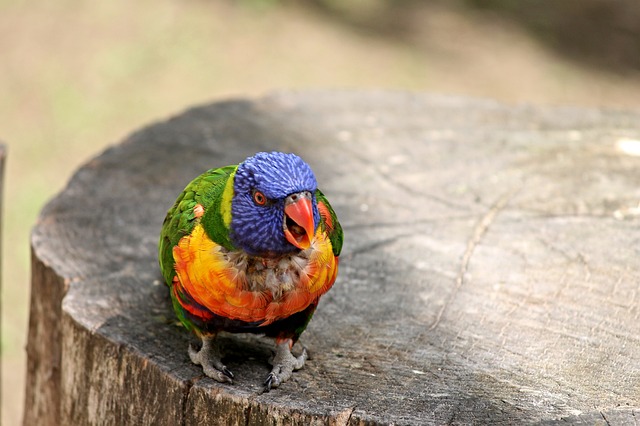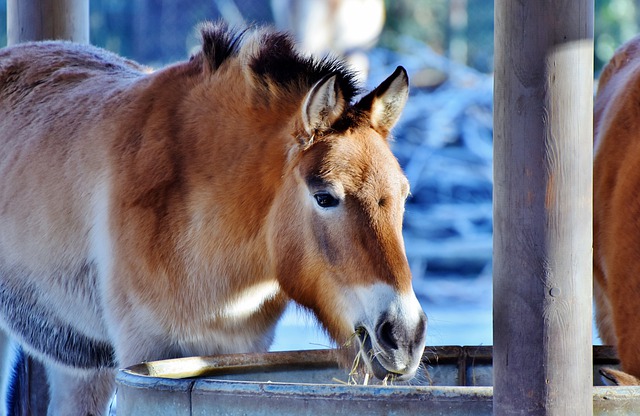“Animal” verbs in Greek Posted by Ourania on Mar 8, 2018 in Culture, Vocabulary
Γεια σας! A few years ago I wrote a post about animal words used when describing people. In this post, there is a list of slang words deriving from animal words. They are verbs and we use them everyday but when translated, they are less “revealing”. If you use similar expressions in your language, feel free to leave a comment!
#1. αραχνιάζω: from αράχνη (spider) / σκουληκιάζω: from σκουλήκι (warm). It refers to a dirty or neglected place.
E.g. Πρέπει να καθαρίσουμε το σπίτι. Αραχνιάσαμε!
We must clean the house. It’s too dirty! (We got spiders)
E.g. Από τότε που έφυγε η καθαρίστρια, σκουληκιάσαμε εδώ μέσα.
Our place got very dirty since the cleaning lady went away.
#2. γαϊδουρεύω: from γάιδαρος (donkey). To act in an inappropriate way.
E.g.Στο δωμάτιό σας γρήγορα! Δεν θα χρησιμοποιήσετε τα τάμπλετ σας για μία εβδομάδα, έχετε γαϊδουρέψει πολύ, τελευταία!
Go to your room at once! You will not use your tablets for one week since you’re so naughty lately!
#3.γουρουνιάζω: from γουρούνι (pig). To eat too much.
E.g. “Ποπο, δε μου κάνει το τζην μου, πήρα τρία κιλά!” “Τι περίμενες; Αφού γουρούνιασες όλη τη βδομάδα!”
“Oh my God, my jeans don’t fit me, I got three kilos!” ‘What did you expect? You’ve been eating like a pig all week!”
#4. κατσικώνομαι: from κατσίκα (goat). When an idea becomes obsession or when we stay with people longer that expected.
E.g. Τι σου κατσικώθηκε να γίνεις αστυνομικός;
Why are you so obsessed about becoming a policeman?
E.g. Μάς είπαν ότι θα έρθουν για το Σαββατοκύριακο και μάς κατσικώθηκαν τρεις εβδομάδες.
They told us they would come for the weekend and they stayed three weeks.
#5. κοκορεύομαι: from κόκορας (rooster). To brag.
E.g. Ο Μάνος κοκορεύεται για τους βαθμούς του γιου του.
Manos is bragging about his son’s grades.
#6. κορακιάζω: from κοράκι (crow). To be very thirsty.
E.g. “Καλό ήταν το φαγητό στην ταβέρνα;” “Οι σαρδέλες ήταν λύσσα! Κορακιάσαμε!”
“Was the food at the taverna good?” “The sardines were too salty! We are so thirsty!” (When a food has too much salt we use the slang expression είναι λύσσα. Λύσσα means rabies.)
#7. μουλαρώνω: from μουλάρι (mule). We use it when someone gets very stubborn and it is impossible to change their mind.
Όλοι της λένε να μην τον παντρευτεί αλλά εκείνη δεν ακούει κανέναν. Έχει μουλαρώσει.
Everybody tells her not to marry him but she doesn’t listen to anyone. It is impossible to change her mind.
#8. παπαγαλίζω: from παπαγάλος (parrot). We use it for students when they echo back what they studied to their teacher.
E.g. Η Μαρία ό,τι ακούει στο ράδιο το παπαγαλίζει στους άλλους.
Maria echoes back to the others whatever she hears on the radio.
#9. σκυλιάζω: from σκύλος (dog). To be very angry, to feel rage against someone or to be very jealous.
E.g. Όταν μάθει ότι πήγαμε στο πάρτι χωρίς αυτόν, θα σκυλιάσει.
When he finds out that we went to the party without him he will be very angry (as mad as a dog).
E.g. Η ξαδέρφη μου σκύλιασε όταν είδε το δαχτυλίδι που μου έδωσε ο φίλος μου.
My cousin got crazy jealous when she saw the ring my boyfriend gave me.
We also use the word σκύλος as a component to form verbs. In this case, it means too much.
#9.a. σκυλοβαριέμαι: from σκύλος and βαριέμαι (to be bored).
E.g. “Πώς πέρασες στο πάρτι;” “Δεν ήταν κανένας γνωστός εκεί σκυλοβαρέθηκα. Έμεινα μια ώρα κι έφυγα.”
“Did you have a nice time at the party?” “there was no one I knew and got really bored. I stayed for an hour and then I left.”
#9.b. σκυλοβρομάω: from σκύλος and βρομάω (to stink).
E.g. Τι μαγείρεψες, ρε Γιώργο; Όλη η κουζίνα σκυλοβρομάει!
What did you cook, George? The whole kitchen stinks!
#10. ψαρώνω: from ψάρι (fish). To be stupefied or unsettled or to fall for it. It is used for recruits or newbies in general.
E.g. Την πρώτη φορά που γνώρισε τους γονείς της φίλης του είχε ψαρώσει τόσο πολύ που δεν είπε ούτε μια λέξη.
The first time he met his girfriend’s parents, he was so shocked that he didn’t say a word.
E.g.“Ο Στέφανος λέει ότι τα ‘χει με την καθηγήτρια της χημείας!” “Καλά, μην ψαρώνεις με ό,τι σου λέει!¨
“Stefanos says that he‘s dating the Chemistry teacher!” “Right, don’t fall for everything he tells you!”

Build vocabulary, practice pronunciation, and more with Transparent Language Online. Available anytime, anywhere, on any device.






Comments:
Simon:
We have similar expressions in English eg
‘rabbiting on’ means talking too much
‘parroting’ means repeating without thinking.
‘telling porkies’ means telling lies (rhyming slang – lies / pork pies.
‘pigging out’ eating too much
‘mulish’ ie stubborn.
‘fishing’ as in looking or asking for something such as fishing for compliments.
Ourania:
@Simon Thank you for your comment, Simon! We also use parroting and pigging out. Fishing, as in asking for something is ψαρεύω.